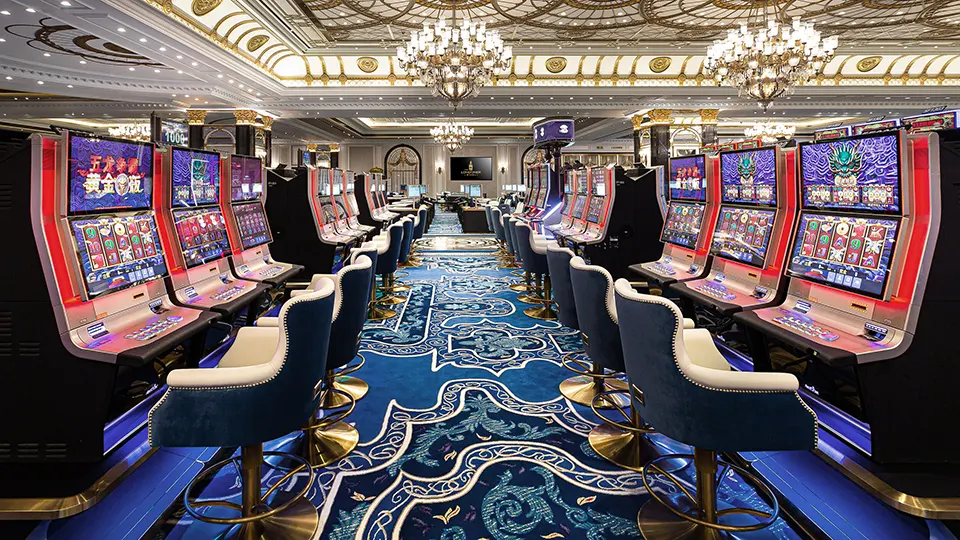The proposal for a casino project in Thailand has ignited discussions across the political spectrum, particularly with the opposition People’s Party voicing concerns about the future of the integrated resort (IR) industry. Daniel Cheng, a seasoned gaming expert and author of How I Built an Integrated Resort, emphasized the necessity for more comprehensive understanding among Thai lawmakers, ministries, and business leaders regarding the nuances of the IR industry. His insights came during an interview with AGB, where he stressed the need for informed debate as the country considers its approach to legalizing casinos.

The Need for Greater Understanding
Cheng pointed out that while parliamentary discussions are beneficial in capturing diverse perspectives, they also highlight a significant knowledge gap within the political landscape regarding the complexities of integrated resorts. He argued that the Paetongtarn government must invest in educating lawmakers and ministries about the economic potential and risks associated with the IR industry, urging them to engage global experts to aid in the drafting process.
His remarks followed feedback from Nont Pisarnlimjaroenkit, a member of the opposition People’s Party, who voiced concerns about the Thai casino bill during parliamentary sessions. According to Nont, Prime Minister Paetongtarn Shinawatra’s administration aims to generate new revenue by incorporating underground businesses, including gambling, into the formal tax system. This initiative is seen as a method to combat illegal gambling while boosting national revenue through the development of entertainment complexes featuring casinos.
Lack of Clarity on Casino Development Plans
However, the government has yet to disclose whether the planned entertainment complex will rival the grandeur of Macau’s casinos or lean towards more modest developments like those in neighboring countries. Nont cautioned that legalizing casinos could potentially open doors to shady business practices and corruption. Cheng echoed these concerns, noting that the parliamentary discussions revealed a lack of detailed knowledge among politicians about the operational and regulatory challenges of the IR industry.
One of the key points raised by Nont was the absence of critical details in the draft bill, such as the proportion of casino space, the proposed tax rate, and entry fees for local residents. These decisions are left to a policy committee headed by the prime minister, creating significant discretion in the final framework of the entertainment complex.
“This flexibility poses risks,” Cheng warned. “It opens the door to potential abuse, as the government may opt for a liberal interpretation, allowing local companies to develop smaller-scale complexes, akin to those in Indochinese countries.”
Risks of Smaller-Scale Developments
Cheng also referred to recent suggestions from Bhumjaithai Party MPs, proposing state-owned entertainment complexes, alongside a proposal from an equestrian club to build a complex in Bangkok. These ideas reflect a growing shift towards smaller, less ambitious projects, which could undermine Thailand’s potential to establish world-class integrated resorts.
Nont further argued that Thailand might struggle to replicate the success of Macau, given that even countries like Singapore, Vietnam, and the Philippines have not achieved the same level of international appeal for their casinos. He expressed skepticism about Thailand’s ability to compete on the global stage.
The Need for a Strategic Vision
In response, Cheng critiqued Nont’s narrow focus on visitor numbers and comparison with Macau’s casino success. He argued that this perspective reveals a misunderstanding of the broader global trends in the IR sector. “Nont seems unaware that Macau is transitioning towards a new model, much like Singapore’s integrated resorts, with the support of the Chinese central government,” Cheng noted.
Cheng concluded that Thailand’s government needs to do more than just attract visitors. It should focus on auctioning off licenses to top-tier global gaming companies, encouraging them to develop world-class entertainment complexes. “If Thailand opts for anything less than this, they are significantly underestimating their potential,” he warned.
Learning from Global Leaders
Cheng also emphasized the importance of recognizing the major players in the global IR industry, suggesting that Thai officials familiarize themselves with companies like Wynn Resorts, MGM, Galaxy Entertainment, Genting Group, Las Vegas Sands, Hard Rock International, Caesars Entertainment, and Melco Resorts. “These are the companies that could transform Thailand’s entertainment landscape, and understanding their expertise is crucial for the country’s success,” Cheng concluded.
The Road Ahead
As Thailand continues to debate the future of casino legalization, Cheng’s remarks underline the necessity for informed decision-making. The government must bridge the knowledge gap, engage with global consultants, and formulate a strategy that maximizes the potential of the IR industry while avoiding pitfalls. Without this, Thailand risks missing out on the economic benefits that well-developed integrated resorts could offer.












